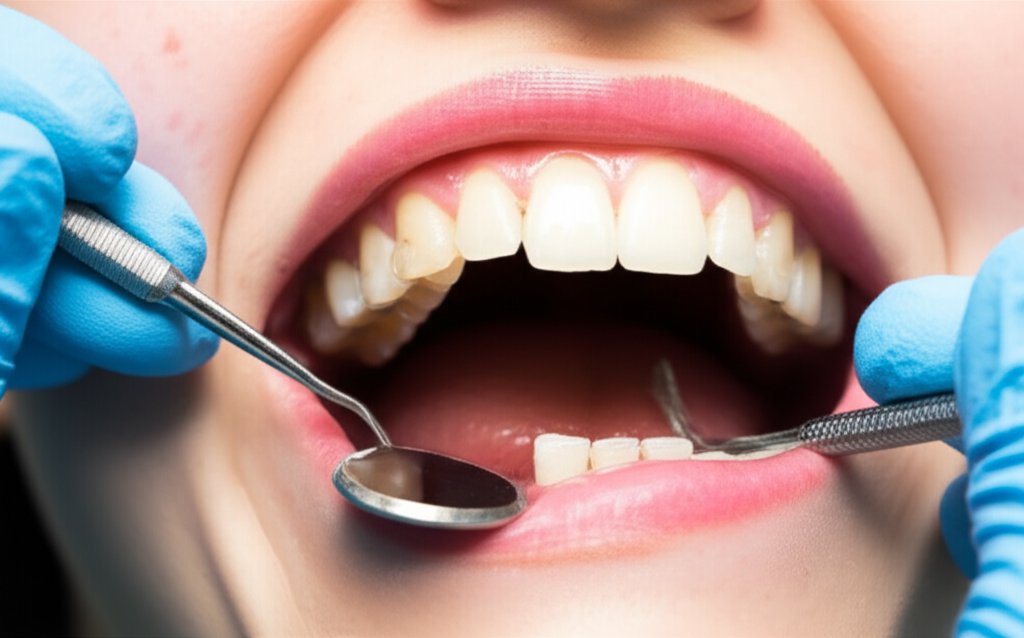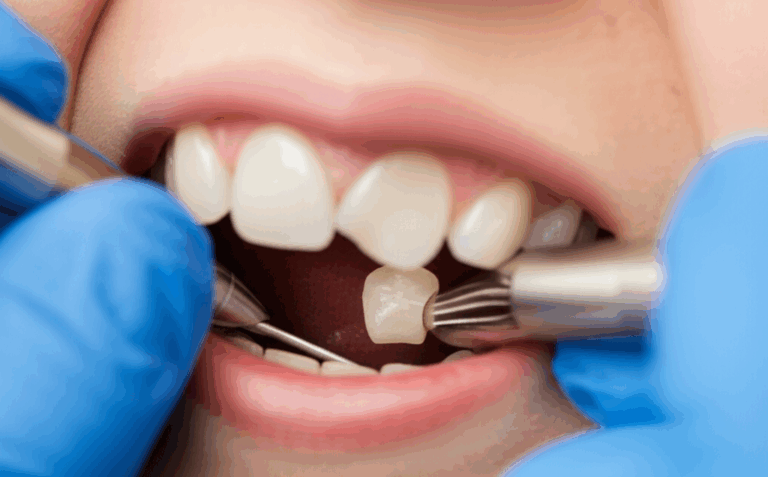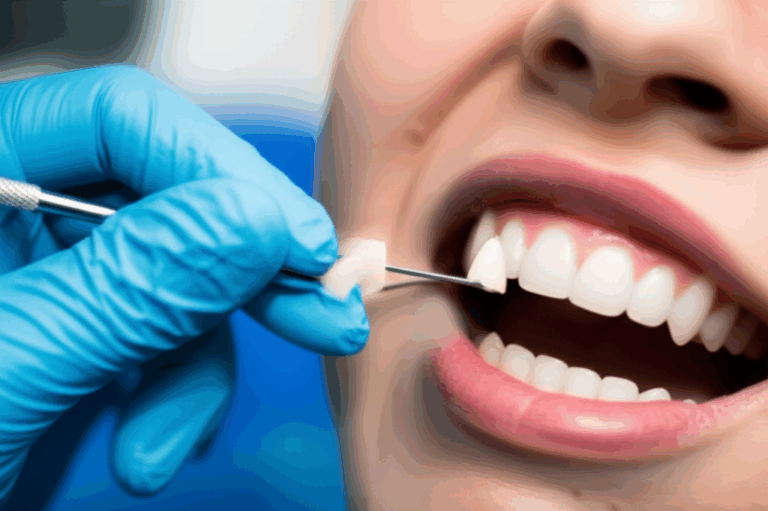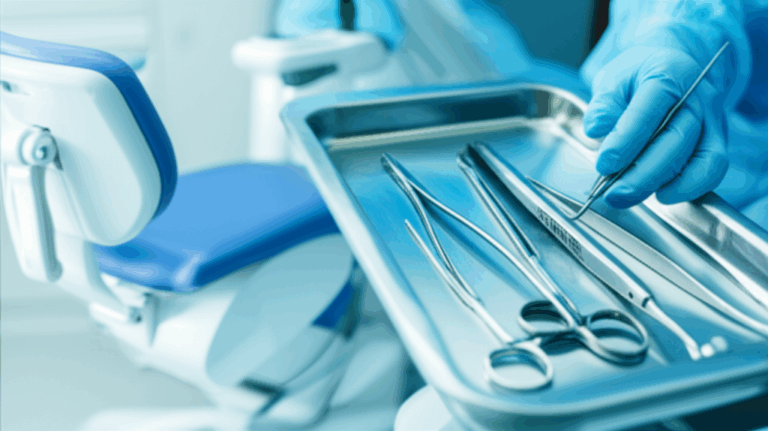
Can a Dentist Cause Nerve Damage? Understanding Risks, Symptoms, and What To Do
That tingling feeling in your lip or tongue after dental work—should you be worried? Maybe you’ve heard stories or you have numbness that’s not going away. Or maybe you’re getting ready for wisdom tooth removal and want to know about the risks. If you’re asking, “Can a dentist really cause nerve damage?” you’re not alone. It’s a common and valid question—one that needs a clear, simple answer so you can look after your health and feel calm.
Here’s the bottom line:
Dentists can cause nerve damage, but it doesn’t happen often—especially not forever. Most symptoms, if they happen, get better with time. Still, knowing the risks, what to look out for, and what to do helps you stay in control.
Let’s walk through everything together, step by step, so you can relax, make good choices, and act quickly if you need to.
In This Article
- What Is Dental Nerve Damage?
- Can a Dentist Cause Nerve Damage? (Direct Answer)
- How Does Nerve Damage Happen During Dental Work?
- Which Dental Nerves Might Get Hurt?
- Dental Procedures Most Likely to Cause Nerve Injury
- How Can You Tell If You Have Dental Nerve Damage?
- How Dentists Check for Nerve Injury
- Does Dental Nerve Damage Go Away? (Recovery)
- What Should You Do About Dental Nerve Damage?
- What Are the Treatments?
- How Can You Lower Your Risk? (Prevention Tips)
- Key Takeaways & What to Do Next
What Is Dental Nerve Damage?
First things first—a simple explanation.
The Basics
Your teeth and mouth have lots of tiny nerves so you can feel, taste, and move. These nerves run through your jawbone, tongue, cheeks, lips, and gums. If dental work bothers or hurts one of these nerves, you might have numbness, tingling, pain, or new taste sensations. In rare cases, some or all of these feelings don’t come back.
Let’s compare it to data cables in a building. Small bumps mess up the signal, but things go back to normal after healing. But a deep cut, squish, or chemical burn takes longer to get better, and sometimes, the feeling never fully returns.
Words You Might Hear
Don’t let unfamiliar words confuse you! Here’s a quick list:
- Paresthesia: Numbness or “pins and needles.”
- Dysesthesia: Burning, tingling, or weird (sometimes unpleasant) feelings.
- Trigeminal nerve: The main nerve for your face, with branches for your teeth, lips, and tongue.
- Inferior alveolar nerve (IAN), lingual nerve (LN), mental nerve: The main nerves that can be bothered by dental work.
Can a Dentist Cause Nerve Damage? (Direct Answer)
Yes—a dentist can sometimes hurt a nerve. This is most likely with certain treatments like wisdom tooth removal or numbing injections, and usually involves nerves in your jaw or tongue.
But here’s the good news:
Permanent nerve damage from dental work is rare. When nerve symptoms do happen, most fade in a few weeks or months. If things aren’t getting better, getting help fast is important.
Who’s This For?
- Maybe you’re getting ready for wisdom tooth surgery and wonder if it’s safe.
- Maybe your tongue or lip is still numb days later.
- Maybe you’re worried if your dentist is careful enough or if you’re at risk.
No matter why you’re here, we’ll cover everything you should know.
How Does Nerve Damage Happen During Dental Work?
Let’s look at this with a simple example.
Picture a busy kitchen at dinner time. The nerves are like water pipes. If someone bumps or squashes a pipe, water flow (like feeling) can be slowed or changed.
Common Ways Dental Nerves Get Hurt
1. Direct Injury:
- Shots/Injections: Sometimes, the dentist’s numbing needle goes too close or even touches a nerve, especially during a lower jaw shot.
- Surgical tools: Drills or other tools can touch or press on nerves during tooth removal, putting in dental implants, or jaw surgery.
- Root canal tools: Rarely, tools or material can go too far and bother a nearby nerve.
2. Chemical Burn:
- Strong medicines (like numbing shots or cleaners) get into places they shouldn’t and bother the nerve.
3. Swelling/Squeezing:
- After surgery, swelling in the jaw can push on nerves, making things feel numb or tingly.
Things That Make Nerve Problems More Likely
- Nerves sitting very close to where the dentist is working (for example, a lower wisdom tooth near the IAN).
- Not using good X-rays or scans (like CBCT) to see where nerves are.
- Working in hard-to-see places.
- Rough use of tools or not being careful enough.
Big tip:
Good dentists always plan so these risks stay low. If you’re worried, ask your dentist how they make sure nerves are safe.
Which Dental Nerves Might Get Hurt?
Let’s break down the nerves most likely to be involved:
1. Inferior Alveolar Nerve (IAN):
- Runs inside your lower jaw.
- Lets you feel your lower teeth, bottom lip, and chin.
2. Lingual Nerve (LN):
- Runs close to your lower back teeth.
- Handles feeling and taste on the side of your tongue.
3. Mental Nerve:
- Comes out the front of your lower jaw; affects the chin and bottom lip.
4. Buccal Nerve:
- Lets you feel your cheek near your lower molars.
5. Facial Nerve (rare):
- Controls some face muscles. Only bothered during big surgeries.
Picture these nerves as busy highways—tough to damage, but if the dentist tools move just the wrong way, you can have a traffic jam (numbness or tingling).
Dental Procedures Most Likely to Cause Nerve Injury
Not every dental visit puts your nerves at risk! Here’s where you should pay more attention.
1. Wisdom Tooth Removal (Especially Lower Third Molars)
- Why risk? Bottom wisdom teeth are often close to the IAN or LN.
- What might happen: Numb or “funny feeling” in the tongue, lips, or chin.
- How common: Lingual nerve problem: up to 22% for a short time, less than 1% forever. Inferior alveolar nerve: about 0.4–13.5% short-term, less than 1% forever.
2. Dental Shots (Mandibular Block Anesthesia)
- How: Needle might touch or put numbing medicine right into the nerve during a deep lower jaw shot.
- How common: From about 1 in 26,000 to 160,000 injections.
3. Dental Implants
- Why?: If the new tooth post is too close to a nerve, it can bother the nerve.
- Which nerve?: Usually IAN or mental nerve.
4. Root Canal Treatments
- How?: If work goes too far past the tooth root, nerve tissue can be hurt, but this is very rare.
5. Deep Fillings or Crowns
- How?: Drilling deep gets close to nerves inside the tooth or jaw.
6. Jaw Surgery (Moving Jaw Bones)
- Why?: This big surgery can move jaw bones and can mess with nerves.
How Can You Tell If You Have Dental Nerve Damage?
Now for the big question—how do you know if what you feel is “normal” after your dental work or a real nerve problem?
Here are the top signs:
- Numbness (“pins and needles” or “dead feeling”): Lip, tongue, chin, or cheek.
- Tingling or burning: Sometimes feels like a “cold burn” or static electricity.
- Change or loss of taste: One side of the tongue just feels different.
- Too much feeling or pain: Everything feels too hot, too cold, or even hurts with a soft touch.
- Hard to talk or eat: A numb tongue makes it hard to move your words or food.
- Weak face (rare): Especially after big jaw surgeries.
- When do these happen: Some symptoms show up right away, but sometimes numbness or taste changes show up hours or days later.
When Should You Worry?
It’s normal to be a bit numb for a few hours after numbing.
But if:
- Numbness, tingling, or burning lasts days after your treatment,
- Taste is weird and not coming back,
- Talking, chewing, or smiling feels wrong,
- Symptoms are getting worse,
You should contact your dentist or a specialist.
How Dentists Check for Nerve Injury
You notice something strange—what happens now?
How Dentists Look for Nerve Problems:
Your dentist will gently touch or poke the numb spot to check. They might ask if you feel hot or cold, sharp or dull, or just what things feel like to you.
When did you first notice the problem? Did it start right away or later?
- CBCT (3D X-ray): Shows exactly where nerves are and looks for trouble.
- MRI (sometimes): For tricky or hard-to-understand cases.
- Oral and maxillofacial surgeon: Looks at surgical or tricky nerve issues.
- Neurologist: For really bad or spreading problems.
- Pain specialist: For ongoing or weird pain.
Why Acting Fast Helps
The sooner you check a nerve, the better it can heal. Quick action could help you get all your feeling back.
Does Dental Nerve Damage Go Away? (Recovery)
Short answer: Most of the time, yes.
Most nerve injuries are temporary—they slowly get better as your body heals.
But sometimes numbness or pain sticks around or becomes permanent, especially if the nerve was really hurt, cut, or squeezed for a long time.
How Long for Healing?
- Short-term symptoms: Often get better on their own in weeks to several months (sometimes 6–9 months).
- Permanent damage: This is rare—usually only after a really bad injury or long wait.
Think of your nerve like a garden hose. Step on it for a second, it comes back to normal. If it’s slashed or squeezed too long, water (feeling) might not come back fully.
WHO is more at risk for not getting better?
- People over 40.
- If you had really bad numbness right after surgery.
- If you waited a long time before getting help.
Signs You’re Healing
- Feeling slowly comes back.
- Tingling or fuzziness that turns into less numbness.
- Any feeling coming back over a few weeks is a good sign.
What Should You Do About Dental Nerve Damage?
So, your mouth is still numb or your taste is off after dental work—this can feel scary. Take a breath. Here’s what to do:
1. Call Your Dentist, Fast
- Be clear: Tell them exactly what’s wrong and where.
- Ask for a quick check-up.
2. Get Another Opinion if Needed
- Oral surgeons and nerve doctors know more about nerve issues.
3. Write Down What’s Happening
- Note when it started, what makes it better or worse, changes over time.
- Keep track of what your dentist says.
4. Ask Questions
- What do they think it is?
- What can be done now?
- What is likely to happen next?
Remember:
Don’t let feeling shy or being brushed off stop you from getting checked. What you feel is real and deserves a good answer.
What Are the Treatments?
Good news—most minor nerve damage from dental work gets better with time and simple care. Still, for tougher or longer-lasting problems, here’s what can help.
What might your dentist or doctor suggest?
- If it’s mild or getting better, just give it time.
- Most small problems go away by themselves.
- Steroids: Help with swelling if used right after the injury.
- Medicines for Nerve Pain: Like gabapentin for burning or pain.
- Vitamin B: Might help nerves heal (ask if you need this).
- Some early research says this may speed healing.
- To help nerves wake up and for pain relief.
- Only for very serious nerve damage that does not get better after a few months.
- The sooner this is done, the better.
- Sometimes nerve damage causes pain that stays.
- Treatment focuses on feeling better and getting back to normal life.
Remember: Nerves heal slowly. Don’t try to handle it all alone—get the info and support you need.
How Can You Lower Your Risk? (Prevention Tips)
Here’s how you and your dentist can try to stay safe:
What Your Dentist Should Do
- Picture First: Use CBCT or good X-rays to see nerves before tricky procedures.
- Be Careful: Use the right techniques, not “guess and go” moves.
- Pick Experts: Use oral surgeons for difficult wisdom teeth, implants, or jaw surgery.
- Talk With You: Encourage you to say if anything feels weird during treatment.
What You Can Do
- Talk about your worries before treatment.
- Share all health info: Say what meds you take, any odd reactions.
- Ask about risks and how they plan to keep you safe.
- Speak up if something feels off during a procedure.
Informed Consent:
A good dentist always tells you the possible risks (even if they’re rare) and prepares you for what might happen, so you don’t get surprised.
Key Takeaways & What to Do Next
Here’s the quick version:
- Yes, dentists can cause nerve problems, but it doesn’t happen often and usually gets better.
- Wisdom tooth removal, deep numbing shots, dental implants, and big jaw surgery are the biggest risks.
- Numbness, tingling, burning, or weird taste that doesn’t fade after a few days means you should tell your dentist.
- Getting checked early (with pictures, medicine, or seeing a specialist) helps healing.
- Most nerve issues get better, but a few can last—so don’t wait to get help.
- You can lower the chance of problems by picking the right dentist, asking questions, and speaking up if you’re worried.
If you think you have dental nerve damage, don’t panic.
Call your dentist or a specialist. You have options—being informed is your best friend.
Want More Guidance?
Still deciding about dental crowns, bridges, implants, or dentures? Check out a specialized crown and bridge lab or an implant dental laboratory. Seeing how these labs work can help you see the quality and care that goes into making comfortable, safe dental restorations.
Frequently Asked Questions: Dental Nerve Damage
Q: How do I know if dental nerve damage is forever?
A: If numbness or changed feelings last longer than 6–9 months with no improvement, it might be permanent. Getting better over time is a good sign!
Q: Can a regular filling cause nerve damage?
A: Not usually, but deep fillings near big cavities can sometimes give short-term numbness or sensitivity.
Q: Can braces or orthodontic work hurt nerves?
A: Very unlikely, since braces and aligners move teeth little by little.
Q: Should I get a second opinion if I’m worried?
A: Yes. Nerve problems should be checked by oral surgeons or nerve doctors if you’re not getting answers.
Real-World Stories & Numbers
- Wisdom tooth extractions have the highest risk: short-term lingual nerve changes in up to 22% of cases, permanent changes in less than 1%.
- After numbing shots in the lower jaw, nerve trouble is very rare (only a few for every 100,000 shots).
- Dental implants cause temporary nerve symptoms in about 0.6-13% of cases, depending on where they’re placed and how good the X-rays are.
Even if something goes wrong, with good follow-up and care, most people get better.
Final Thoughts: You’re in Charge!
Worried about nerve damage after dental work doesn’t make you a “bad” patient—it makes you smart and careful.
Pick a dentist who listens, uses the best tools (like good X-rays and careful treatment), and lets you ask questions.
If you want to learn more about crowns, bridges, dentures, or implants, you can find helpful info from a solid china dental lab or see what a modern digital dental lab can do for smooth, comfy results.
Ready to make the right choice for your teeth? You’re in control. Talk with your dentist, ask anything you want, and know you’re doing your best for a healthy mouth.
Where to Learn More
- American Dental Association (ADA): www.ada.org
- British Dental Journal
- Journal of Oral and Maxillofacial Surgery
> Note: This article is for general information only. It is not medical advice. Always ask your dentist or doctor about your own health.
You know what’s going on. You have choices. You’ve got this.








